Updates
The Russians Are Coming! How To Manage Comfrey The Smart Way!
If I could only have three herbs in my life, comfrey would be on that list. I’ve used it constantly for many years in my veterinary and naturopathy practices. Its name comes from the Old Anglo-French word cumfirie To Heal. And what a healer it is! Over the years as a veterinarian and naturopath, I’ve used it on countless cases. I’ve used it on humans, dogs, goats, chickens, cows and about every other critter you can think of for all sorts of different issues.
If you’d like to see some of those cases, I’ve written blog articles about a few them. I’ll put a link down below so you can look at them if you like.
So, comfrey is an amazing botanical treasure but there’s a problem…
Comfrey is a lovable megalomaniac that feels the need to fill your entire property!
That’s right. Comfrey is an extraordinarily prolific, busy, bossy, beast that spreads like crazy. And, if that weren’t enough, it’s astoundingly hardy and resilient. You could dig down a really long way trying to uproot the rascal and it would just smile and say. “Wow, you must really love and need me to take so much. Don’t worry, I’ll be fine.” I tell folks they shouldn’t ever harvest comfrey with a backhoe…if they do, it could take weeks to recover. And, certainly, don’t ever get near it with rototiller! Each bit of root left in the ground will joyfully spring to life and produce a wonderful comfrey plant in no time.
I tried several strategies to keep comfrey contained. My final solution was to plant it in a bed which was surrounded by four feet of concrete sidewalk. This worked beautifully. No comfrey grew in the concrete at all! But it did grow happily on the other side of the sidewalk. You see comfrey seeds are like little black ping pong balls that happily bounced along the concrete to the other side. I’ve spent years digging up volunteer comfrey plants all over my property and apologetically giving them to friends and students.
Then I made a wonderful discovery. Russian Comfrey!
In the late 1800s some nice botanists found some naturally occurring hybrids of comfrey in the Caucasus mountains. The plants were a cross between regular comfrey, Symphytum officinale, and its local cousin Symphytum aperium. They named the hybrid Symphytum x Uplandicum and called it Russian comfrey. These plants were a little more vigorous, a little faster growing and a little bigger than either of the parent species. Much as a mule is stronger and tougher than either of its donkey or horsey parents. Also like mules, Russian comfrey is sterile. It can’t make babies with seed!
So, you can plant Russian comfrey and not worry about it taking over your entire property because it won’t spread by seed. If you want to spread it, you can easily do so with root cuttings. It won’t mind.
I’ve been using Russian comfrey for years now and have been delighted with it. Near as I can tell, it’s every bit as medicinal and it’s certainly much better behaved than the regular comfrey.
If you’d like to see this wonderful Russian critter, have a look at the YouTube video above.
If you’d like to learn some of the wonderful uses of comfrey, we’ll be having a free webinar next week. We’ll be learning some great stuff and having a Q&A afterward.
Have a great day. :0)
Doc Jones
HomeGrown Herbalist School
Click Here to See Docs Comfrey Formulas
Some Wound Cases Using Comfrey
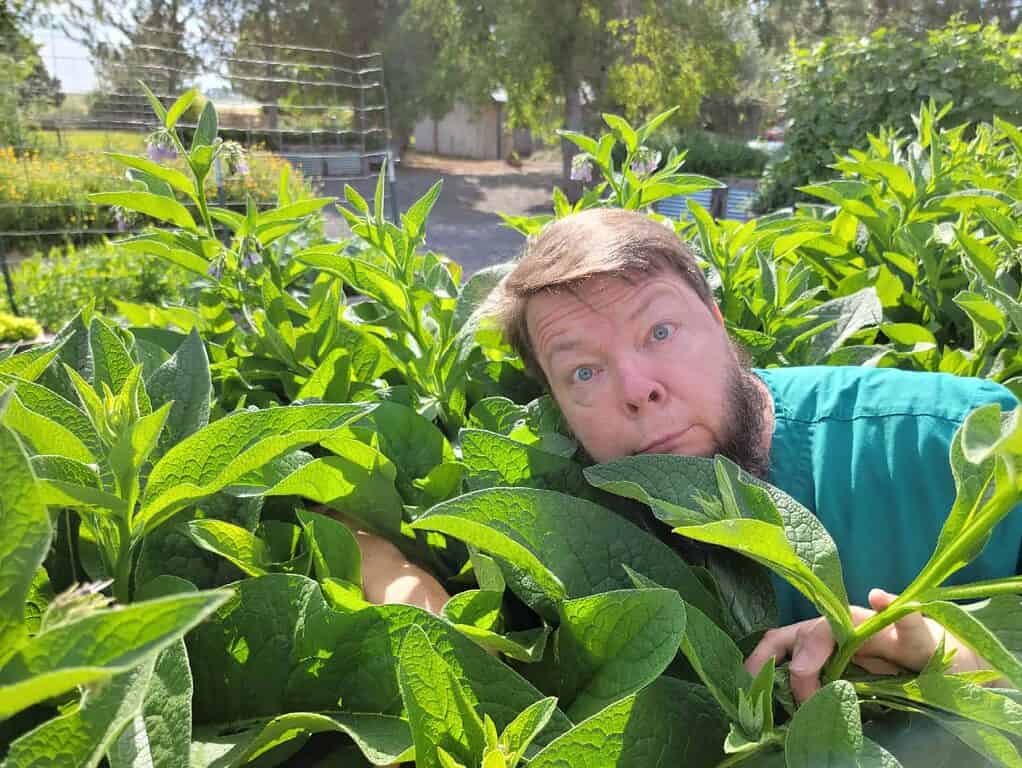
Join Us For A FREE WEBINAR Next Week
ALL ABOUT COMFREY!!!




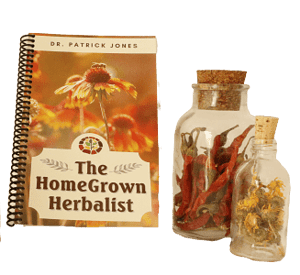

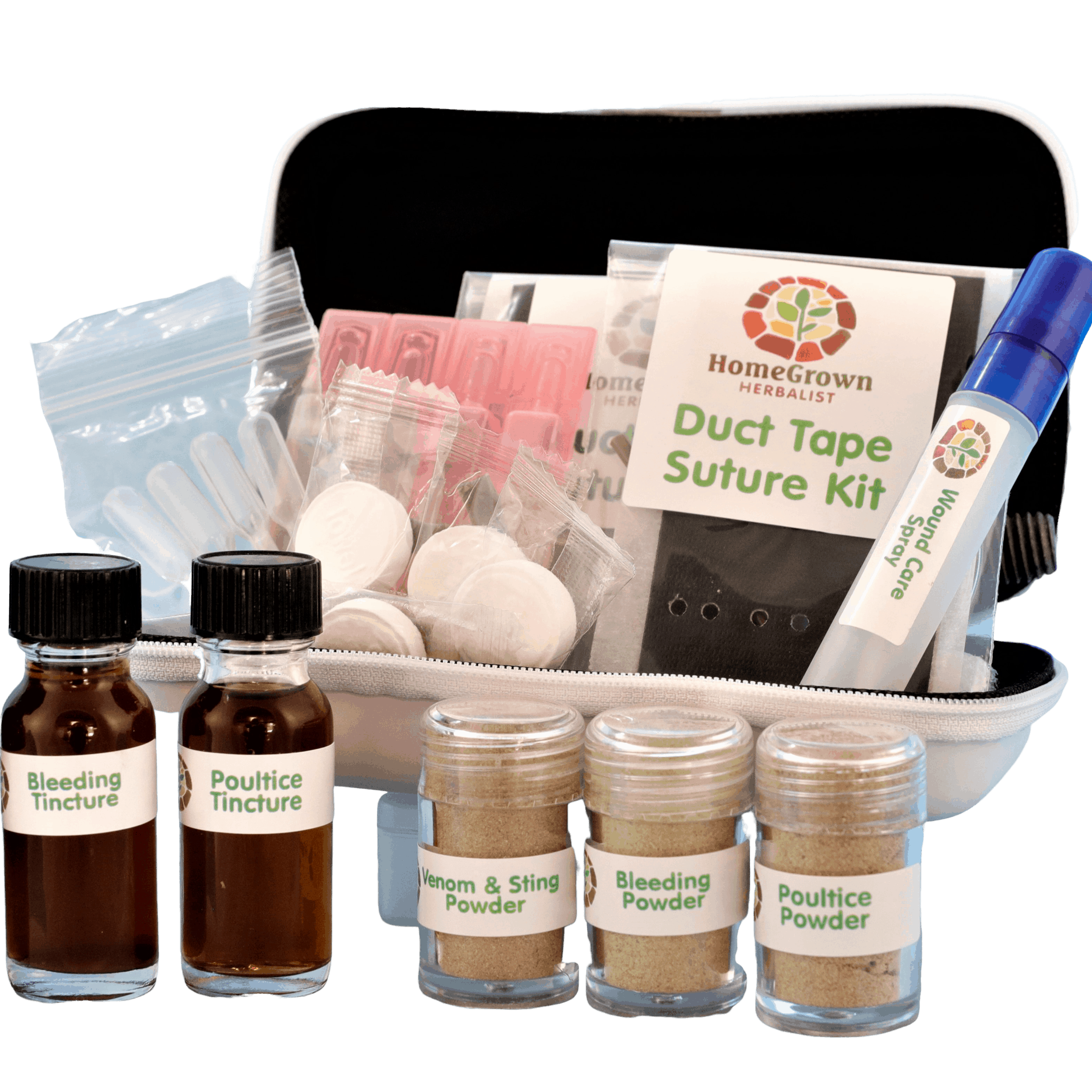
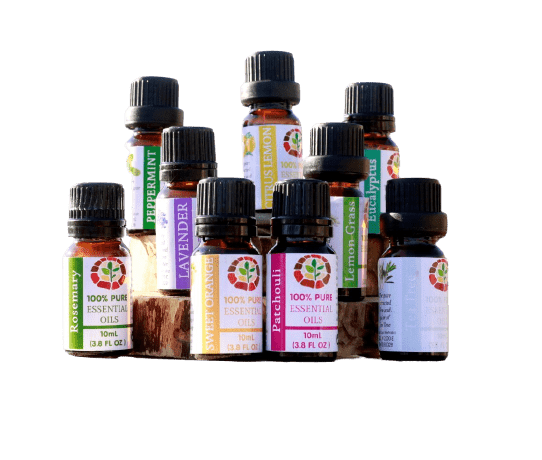

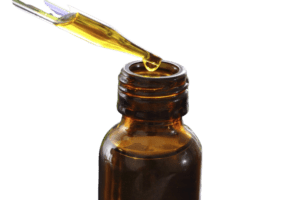
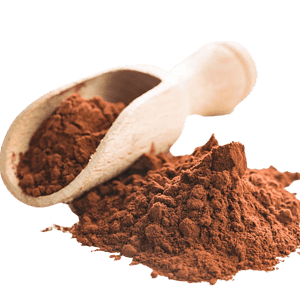
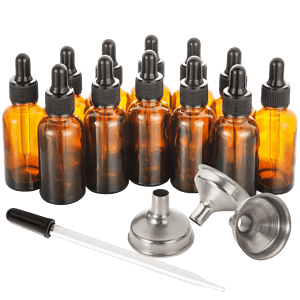

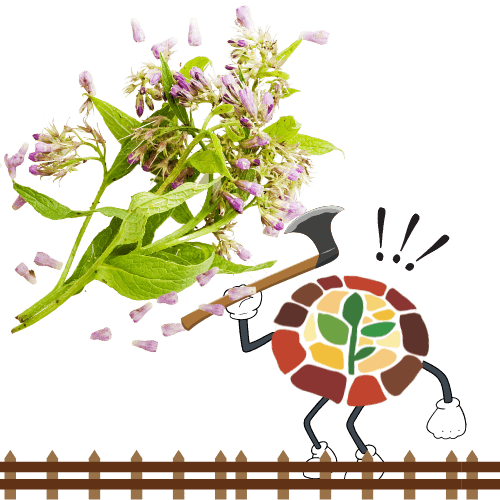
But if it doesn’t reproduce, how do you make more of it?
Root cuttings. :0)
Do you have any Russian comfrey for sale that I could buy and replant in my yard?
We’ll get some ready for sale in the spring. :0)
Thank you so much for this information. I ordered two plants but have no clue what variety they are. I need to check that out. I do not need an invasive plant.
Yeah. You’d lie the mules better than the horses in this case…less likely to run off and be naughty.
Dear Doc Jones,
Because you are “the source” for all things botanical, herbal – generally things medicinal in nature – as well as wonderful anecdotes, I tried comfrey for pain/wound healing on your recommendation. As always, you steered me in the right direction and comfrey will forever be an integral component in all modalities toward wellness and healing. Deepest thanks!
I use comfrey along with plantain and a few other herbs in my Comfrey cream. I’ve had great comments back from folks and even one doctor wanted to know more as it helped a patient he had been treating for sometime without success. Good herb!
Pops
Yup. Comfrey lotions are great. :0)
Glad it helped Wendy. :0)
I have Russian sage that is invading my xeriscape garden and Russian thistle that is invading the wild part of my acreage. So this might be the only Russian that isn’t invasive.
Comfrey is a pretty well behaved Russian compared to some of its friends. :0)
Doc,
What are the other two Herbs??? Just curious, loved the article.
Probably Cayenne and Calendula…or gumweed and plantain…or mullein and burdock…or….
Thanks, Doc. BTW is the ‘Bocking 14’, supposedly sterile, the same as Russia comfrey?
Yup. Same critter.
Thanks, Doc. BTW is ‘Bocking 14’ variety, supposed to be sterile, the same as Russian comfrey? And, how did you…ever…. get rid of the ‘self-sown’ wildlings?
Yup. Bocking-14 is Russian comfrey.
I never have gotten rid of the wild kids. I just keep harvesting them whenever I see them.
In 2002, our family was doing the gardening at the Fort at #4 in Charlestown, N. H. as part of our volunteer work for free admission to events. Someone thought they would help us out, and without asking or telling us, they rototilled the garden space. Yes…. You guessed it…. There was comfrey in one corner, which they obliviously “planted” in the whole garden. I’m sure it was Russian comfrey.
After that experience, I was afraid of comfrey for close to 15 years. I was afraid to plant it for fear it would invade.
Several years ago, a neighbor told me her comfrey always stayed where she put it, and I realized it could be planted safely as long as volunteer rototillers were kept away, so I took a leap, got brave, and planted Russian comfrey as a border all around a garden. It has been there for maybe 5 years now and although there are a few stragglers that I plan to remove, it is staying where I put it.
I am also growing true comfrey now, just because it seems like an herbalist should have plants that can go to seed…. 🙂
Rototillers and comfrey never end well. :0)
Looking forward to the comfrey talk.
I love comfrey. I grow Bocking 14, one of the Russian comfreys. Besides using it herbally for animals and people, I’ve used it to heal tree wounds, too. A few years ago, we had a nasty winter with super deep snow and the pocket gophers ringed 20 apple trees leaving bark damage from the ground up the trunk 3 feet. The situation was hopeless. I wrapped the trees trunks with comfrey leaves, replacing the leaves as they dried out. The three trees I wrapped with comfrey leaves made it through and produced fruit the same season. (I couldn’t wrap all of them as I didn’t have enough leaves) Now I wrap comfrey leaves around grafts and mulch with the leaves any time I see a fruit tree struggling.
I’m a student in Homegrown Herbalist School of Botanical Medicine. I’m looking forward to your webinar.
Wow Chris that is so cool. I’ve always known comfrey had the same effect of growth promotion of plants when used as a fertilizer and have always wanted to try it on a tree wound or graft but haven’t had the chance. Thanks for sharing.
Whoop! Living in the middle of the Caucasus now, I am surely going to keep my eyes open for this one!! 😀 Let those Russians invade our property..! 😉
Love, Esther
Hi Esther. I was thinking about you guys while I as writing that. Glad you’re enjoying the Caucasus. :0)
Whoa that’s cool 🥰. Oh yes we do, it’s absolutely amazing here!
Coming winter I hope to emerge myself in your herbal lessons again, so I’ll be prepared to deal with all the awesome growies next year! 😃
I posted a comment the day this came out and keep checking back to see if it has appeared yet. So far it hasn’t. I don’t know if it got lost or if it is just delayed in the approval process. It didn’t have anything disagreeable or contrary in it. The one comment that appears was posted shortly before I made my comment, and there are none since then. Any idea what happened?
I’m just a slowpoke Deanne. It’s been a crazy week and I forgot to check the comments. Thanks for being patient. :0)
Doc
Dear Doc Jones, it was not possible for me to download your comfrey video on YouTube. The connection in Germany is often very bad. Would it be possible to buy it as a PDF ? It’s only for privat use. I’m trying to get independent with medical issues for me and my family. I already bought both your books, the are amazing 👍👍👍
Hi Lilli,
Send an email to [email protected] and we’ll be happy to send you a PDF.
I’ll email it to you Lilli. :0)
DOC . Im new here saw you on You tube at Caroline’s home critiquing her herb garden and from the saw the one on comfrey Im trying to buy both your books and a couple of dvd but the code on back of my credit card has worn off can i mail in a check…..Id like to share this with a friend whos daughter in law has been passing out frequently and continues to throw up. Has been to Dr but can find what to do. A week ago she was to have a colonoscopy and passed out before she could start the prep. It was hours before she could get up off the floor so her colonoscopy was rescheduled for today. Found she has Crohn’s disease, colitis and bleeding ulcers in her small intestine. Next step is to see the doctor AGAIN. but they just give drugs. NO HELP….Would comfry help this
Barbara
He Barbara,
Have her shoot me an email.
Ok I’ll forward this thanks…..also I’ve got the Russian comfrey is it best to dry first when Tincturing this or do it raw
I dry about everything before tincturing. Be sure to chop up the root before you dry it. It’s no fun to grind big ones.
Hi doc Jones. I have a granddaughter who is 22 years old she has had four concussion has headaches, anxiety to point she can’t function, loud noises being around people she can’t do the doctors have her on medication that effects her appetite so she’s not eating and nothing is working
Hi Judy,
Shoot me an email.
https://homegrownherbalist.net/contact-us/
I’ve heard/read/been taught that the pyrrolizidine alkaloids that are supposed be a problem if ingested are worse in Russian comfrey, and if ingesting comfrey I should only use comfrey that has been originally ‘bred’ (for lack of a better word) or growing wild in the United States.
Therefore, I have avoided Bocking 14 Comfrey. What are your thoughts on this?
Pyrrolizidine alkaloid levels can vary markedly from day to day and from plant to plant. There have been some studies showing that some individual plants had no PAs while others had lots. I think it’s strongly influenced by stage of growth, growing conditions etc…
For topical use, I don’t think it matters at all.
Hello! Just found you. My 25 year old son burps all the time – he sits up in bed in the middle of the night just to get rid of gas. This has been going on for at least 6 years. He has seen doctors who give strong antibiotics along with probiotics to help his gut fight Citrobacter Freundii to no avail. His left lung collapsed about a month ago and I suspect his gut problem had something to do with it. We would love to hire you to help him naturally! He is scheduled to see a gastroenterologist on Feb. 1, but would love to try natural remedies first. Can you help us?
Hi Mary,
I sent you an email. :0)
Love that movie, “The Russians Are Coming”. We have the Russian variety and it has been great. Bocking #4. Keep it in it’s own bed. Have used it to make liquid plant food, extra animal feed in winter and now for medicinal herb.